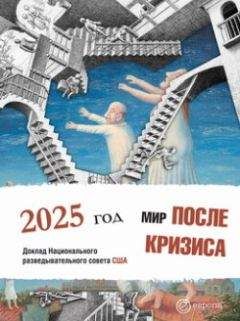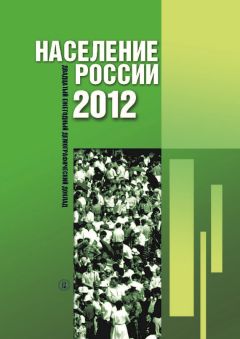Oscar Wilde - The Happy Prince and Ohter Tales
extraction [ik'stræk∫(ə)n] descent [di'sent] triumph ['traiəmf]
My father was a Rocket like myself, and of French extraction. He flew so high that the people were afraid that he would never come down again. He did, though, for he was of a kindly disposition, and he made a most brilliant descent in a shower of golden rain. The newspapers wrote about his performance in very flattering terms. Indeed, the Court Gazette called him a triumph of Pylotechnic art.'
`Pyrotechnic, Pyrotechnic, you mean (Пиротехнического, вы хотите сказать: «имеете в виду»; to mean — подразумевать, иметь в виду),' said a Bengal Light (сказал Бенгальский Огонь; light — свет, источник света); `I know it is Pyrotechnic (я знаю, что правильно говорить Пиротехнический), for I saw it written on my own canister (я видел, как это слово написано: «видел его написанным» на моей /собственной/ коробке; to see (saw, seen); to write (wrote, written); canister — банка для кофе, специй, канистра; коробка).'
`Well, I said Pylotechnic (итак, я сказала Пилотехнического),' answered the Rocket (ответила Ракета), in a severe tone of voice (строгим тоном /голоса/), and the Bengal Light felt so crushed (и Бенгальский Огонь почувствовал себя таким раздавленным; to crush — давить, мять, crushed — раздавленный, смятый) that he began at once (что он тот час же начал; to begin (began, begun)) to bully the little squibs (задирать/запугивать маленькие Шутихи), in order to show (для того, чтобы показать) that he was still a person of some importance (что он все еще был = оставался достаточно важной персоной: «человеком некоторой важности»; importance — значение, важность).
pyrotechnic ["pai(ə)rə(υ)'teknik] Bengal [beŋ'gO:l] importance [im'pO:t(ə)ns]
`Pyrotechnic, Pyrotechnic, you mean,' said a Bengal Light; `I know it is Pyrotechnic, for I saw it written on my own canister.'
`Well, I said Pylotechnic,' answered the Rocket, in a severe tone of voice, and the Bengal Light felt so crushed that he began at once to bully the little squibs, in order to show that he was still a person of some importance.
`I was saying (я говорила),' continued the Rocket (продолжила Ракета), `I was saying — What was I saying (что я говорила)?'
`You were talking about yourself (вы говорили о себе самой),' replied the Roman Candle (ответила Римская Свеча; to replay — отвечать).
`Of course (конечно же); I knew I was discussing some interesting subject (я знала, что обсуждала некий интересный предмет) when I was so rudely interrupted (когда я была так грубо прервана = меня так грубо прервали; rude — грубый, невоспитанный; to interrupt — прерывать, перебивать). I hate rudeness (я ненавижу грубость) and bad manners of every kind (и невоспитанность: «плохие манеры» всякого рода; manner — метод, манера; воспитанность, хорошие манеры), for I am extremely sensitive (так как я чрезвычайно чувствительна; sense — чувство, ощущение, sensitive — чувствительный, нежный). No one in the whole world (никто /больше/ в целом мире) is so sensitive as I am (такой чувствительный, как я), I am quite sure of that (я в этом совершенно уверенна; sure — уверенный).'
subject ['sλbdζikt] rudely ['ru:dli] extremely [ik'stri:mli]
`I was saying,' continued the Rocket, `I was saying — What was I saying?'
`You were talking about yourself,' replied the Roman Candle.
`Of course; I knew I was discussing some interesting subject when I was so rudely interrupted. I hate rudeness and bad manners of every kind, for I am extremely sensitive. No one in the whole world is so sensitive as I am, I am quite sure of that.'
`What is a sensitive person (а что это значит быть чувствительным человеком: «каков чувствительный человек»)?' said the Cracker to the Roman Candle (спросил Фейерверк-Хлопушка у Римской Свечи).
`A person who, because he has corns himself (это человек, который, оттого что у него самого мозоли на ногах), always treads on other people's toes (всегда наступает людям на ноги; to tread — ступать, наступать; toe — палец ноги),' answered the Roman Candle in a low whisper (ответила Римская Свеча тихим шепотом; low — низкий); and the Cracker nearly exploded with laughter (и Фейерверк-Хлопушка чуть не лопнул: «взорвался» от смеха; to explode — взрывать; to laugh — смеяться).
`Pray, what are you laughing at (позвольте узнать, над чем вы смеетесь; to pray — молить(ся); просить /как вводное слово/)?' inquired the Rocket (спросила Ракета; to inquire — спрашивать, узнавать); `I am not laughing (я не смеюсь).'
`I am laughing because I am happy (я смеюсь оттого, что я счастлив),' replied the Cracker (ответил Фейерверк-Хлопушка).
tread [tred] explode [ik'spləυd] laughter ['lα:ftə] laugh [lα:f]
`What is a sensitive person?' said the Cracker to the Roman Candle.
`A person who, because he has corns himself, always treads on other people's toes,' answered the Roman Candle in a low whisper; and the Cracker nearly exploded with laughter.
`Pray, what are you laughing at?' inquired the Rocket; `I am not laughing.'
`I am laughing because I am happy,' replied the Cracker.
`That is a very selfish reason (это очень эгоистично: «это очень эгоистичная причина /для смеха/»),' said the Rocket angrily (сказала Ракета сердито; angry — сердитый, гневный). `What right have you to be happy (какое вы имеете право быть счастливым; right — правильность; право, привилегия)? You should be thinking about others (вам бы следовало подумать о других). In fact (на самом деле), you should be thinking about me (вам бы следовало думать обо мне). I am always thinking about myself (я всегда думаю о себе), and I expect everybody else to do the same (и я ожидаю, что и все будут делать то же самое = поступать так же; to expect — ожидать, ждать). That is what is called sympathy (это как раз то, что называется взаимопониманием/сочувствием; sympathy — симпатия, расположение; сострадание). It is a beautiful virtue (это прекрасная добродетель), and I possess it in a high degree (и я обладаю ею в высокой степени). Suppose, for instance (предположим, например), anything happened to me to-night (что сегодня вечером что-нибудь со мной случилось; to happen — случаться, происходить), what a misfortune that would be for every one (каким несчастьем это было бы для всех и каждого; fortune — счастье, удача)! The Prince and Princess would never be happy again (Принц и Принцесса больше никогда бы не были снова счастливы), their whole married life (вся их семейная жизнь; married — женатый; брачный, супружеский) would be spoiled (была бы испорчена; to spoil — портить); and as for the King (а что до самого Короля), I know he would not get over it (я знаю, что он бы не оправился от этого = не пережил бы этого; to get over smth. — оправиться, прийти в себя, свыкнуться с мыслью). Really, when I begin to reflect (по правде говоря, когда я начинаю размышлять; to reflect — отражать; раздумывать) on the importance of my position (о важности моего положения), I am almost moved to tears (меня это трогает: «я тронута» почти до слез; to move — двигать; трогать, волновать).'
sympathy ['simpəθi] virtue ['və:t∫u:] misfortune [mis'fO:t∫(ə)n]
`That is a very selfish reason,' said the Rocket angrily. `What right have you to be happy? You should be thinking about others. In fact, you should be thinking about me. I am always thinking about myself, and I expect everybody else to do the same. That is what is called sympathy. It is a beautiful virtue, and I possess it in a high degree. Suppose, for instance, anything happened to me to-night, what a misfortune that would be for every one! The Prince and Princess would never be happy again, their whole married life would be spoiled; and as for the King, I know he would not get over it. Really, when I begin to reflect on the importance of my position, I am almost moved to tears.'
`If you want to give pleasure to others (если вы хотите доставить другим удовольствие),' cried the Roman Candle (воскликнула Римская Свеча), `you had better keep yourself dry (вам бы лучше остаться сухой; to keep — держать, иметь; сохранять прежнее состояние).'
`Certainly (безусловно),' exclaimed the Bengal Light (воскликнул Бенгальский Огонь), who was now in better spirits (который теперь пребывал в лучшем расположении духа; spirit — душа; настроение); `that is only common sense (это просто /соответствует/ здравому смыслу; common — общий, обыкновенный, простой, common sense — здравый смысл, практический ум).'
`Common sense, indeed (здравый смысл, в самом деле)!' said the Rocket indignantly (сказала Ракета негодующе; indignant — возмущенный, негодующий); `you forget that I am very uncommon (вы забываете, что я-то совсем не простая) and very remarkable (и очень замечательная). Why, anybody can have common sense (ба, да у кого хочешь может быть: «каждый может иметь» здравый смысл), provided that they have no imagination (при условии, что у него нет воображения/фантазии; to provide — снабжать, обеспечивать; предусматривать). But I have imagination (а у меня воображение есть), for I never think of things (потому что я никогда не думаю о вещах) as they really are (какими они в действительности являются); I always think of them (я всегда думаю о них) as being quite different (как будто они совершенно другие; different — различный, иной, особый).




